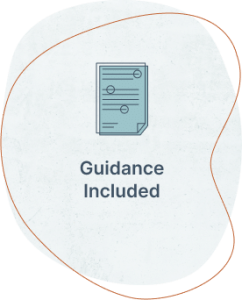Let’s be honest, shortcuts are often welcome in our busy lives. Using templates for legal documents offers an efficient and convenient solution for businesses looking to streamline their operations. A simple internet search will give you a multitude of sponsored ads and links to the type of template you may be looking for. While templates offer numerous advantages, it’s crucial to acknowledge their potential pitfalls
This article looks into the main pros and cons of using business legal document templates, offering insights on how to mitigate risk and optimise their value to your business
The Pros
Using legal templates save you time
Templates serve as time-saving tools by providing a standard framework that requires personalisation and adaptation rather than starting from scratch. This is particularly advantageous for routine documents, such as NDAs, employment contracts and standard documents like sales and purchase terms and conditions. When time is of the essence, avoiding delays, such as waiting for legal assistance, can be invaluable
Legal templates can save you money
Using templates reduces the legal costs associated with hiring or employing a lawyer to draft routine documents. Businesses gain access to high-quality templates at a fraction of the cost of tailor-made documents
Templates bring consitency across your organisation and transactions
Legal templates contribute to promoting consistency across different organisational departments and transactions. Standardised structure, formatting and language minimise ambiguity, reducing the likelihood of misunderstandings and disputes
Online downloads make access to legal templates easy for all
Online provision has made legal document templates available to businesses of all sizes. Micro-business and small enterprises, who may not regularly engage external lawyers, can now access quality legal documents which were previously unaffordable for them. This helps level the playing field, as competitive advantage and professionalism are no longer dependent on financial clout
They are useful sources of knowlege and know-how
Using templates, along with the accompanying guidance, can help business owners and employees understand common legal provisions and gain a better understanding of the legal framework in which their businesses operate. Knowledge can always be put to good use
Using legal document templates offers businesses an efficient, cost-effective way to standardise operations, save time, and ensure consistency across departments, making quality legal resources accessible to even the smallest of enterprises
The Cons
Lack of customisation
Templates by their nature are standardised documents, presenting a risk that they might not fully address the unique needs of your particular business or transaction. Taking time to read and familiarise yourself with the template before you start using it, referring to the guidance as needed, will help you better assess its adequacy. When in doubt, seeking legal help is advisable
Used unwisely they could increase exposure to risk
Using templates without legal review may expose your business to additional risk, particularly if the template has been sourced from an unreliable source or is being used for a complex transaction without proper legal expertise. Templates can contain outdated, incorrect or irrelevant provisions, or they may not comply with the relevant laws or regulations of the country in which you are doing business. I’ve written about this in more detail in “Best practices for sourcing your legal document templates”. In a nutshell, check your source of templates and, if you are in any doubt about using and adapting a template for your purpose, engage a lawyer to help or review
Complexity – some transactions require a professional involvement
Some business transactions are complicated in nature and necessitate professional legal involvement. If you are not legally trained and attempting something in-depth, there is still mileage in a well drafted template as it can save time and reduce legal costs. However when things are complex and you are not a lawyer, take legal advice as needed
Beware of over reliance
Over reliance on templates or a template based subscription service, without understanding the underlying legal principles, can create a dependency on auto-generated products or generic language and provisions, fostering a false sense of security. A good template service will have the expertise to offer plenty of legal content to support their products and will regularly review documents so they remain up to date. They will also offer support on their website or via email. Although they shouldn’t be giving you legal advice, they will be able to signpost you and assist to a good standard. This will all help you mitigate risk but may also encourage you to rely more heavily on a single solution. Avoid dependency by keeping a broad range of sources to hand and don’t be afraid to take expert legal advice as and when necessary
In conclusion
While legal document templates offer significant benefits such as time savings, cost efficiency, and consistency across business operations, it’s important to approach their use wisely. Understanding their limitations, ensuring you customise thoughtfully, and seeking professional legal advice when dealing with complex matters or for assurance, are essential steps to mitigate risks and maximise the value of these tools for your business













